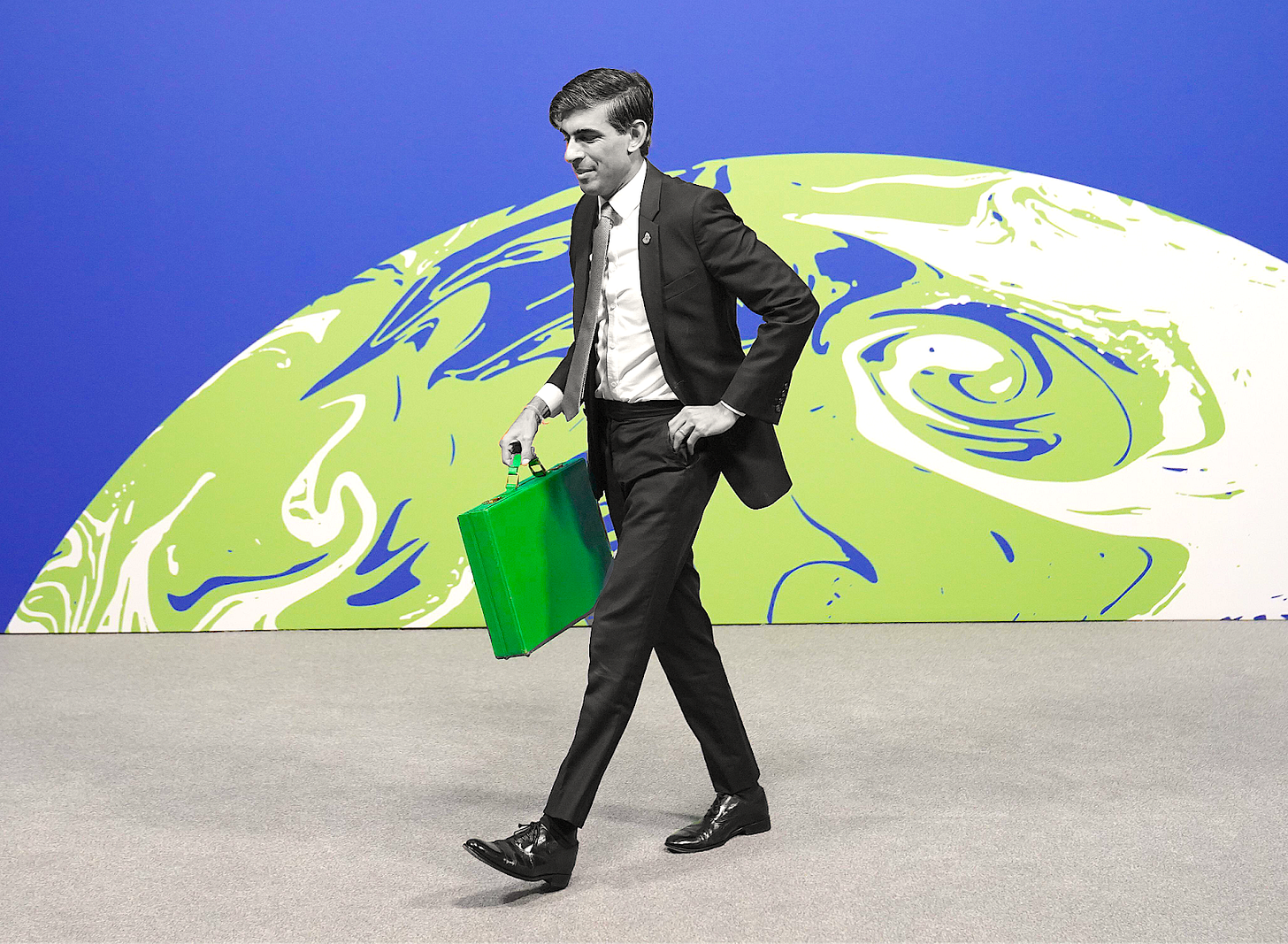How the ‘Climate Avoiders’ Have Taken Over Our Politics
Rishi Sunak's rapid retreat from his pledges on tackling climate change is a worrying sign of things to come, reports Adam Bienkov
The sheer scale of the global climate crisis should by now be impossible to ignore.
Over recent months vast wildfires have turned huge swathes of North American skies an apocalyptic orange and led to mass evacuations in parts of Southern Europe.
In India, climate change has contributed to what was described as “doomsday” flooding, while in parts of Africa scientists say catastrophic droughts and famines are now 100 times more likely than they were before the crisis began.
The pace of the change is frightening. In July global temperature records were reached and exceeded not just once, but four times, while in the UK the Met Office predicts that by the end of the century, this year’s record temperatures will be considered “cool” by comparison.
Yet as the world burns, British politicians are increasingly starting to fiddle.
Rishi Sunak, who previously said he was “committed” to tackling climate change for the benefit of his two daughters, is rapidly backing away from many of his previous pledges on the issue.
This backtracking began immediately after he entered office. One of Sunak’s first acts as Prime Minister was to demote his Climate change minister from Cabinet, while cancelling his plans to attend the COP27 climate conference. He only reversed this latter decision after his predecessor and rival Boris Johnson threatened to attend instead.
Following the Uxbridge by-election, in which his party narrowly held onto the seat due to a campaign against new pollution charges in the area, the Prime Minister said that he was now reviewing whether all of his plans to reach ‘Net Zero’ emissions by 2050 were “proportionate and pragmatic”. His Government’s commitment to ban new sales of petrol and diesel cars by the end of the decade is reportedly first for the chopping block.
One source close to Sunak insisted that the Prime Minister simply no longer “cared” about reaching Net Zero. This lack of interest has not gone unnoticed. In his resignation letter in June, Sunak’s foreign Office Minister Zac Goldsmith told the PM that “The problem is not that the Government is hostile to the environment, it is that you, our Prime Minister, are simply uninterested. That signal, or lack of it, has trickled down through Whitehall and caused a kind of paralysis”.
Others question whether it is really lack of interest that has caused this shift, or something else. As Byline has previously reported, the Conservative Party has close financial ties to the fossil fuel industry, while Sunak’s own wife earns millions of pounds a year from her shares in a family firm which has previously signed large contracts with companies including BP and Shell. A spokesperson for the Prime Minister told Byline that his wife’s connections to Infosys were not “relevant” to his decisions as PM.




